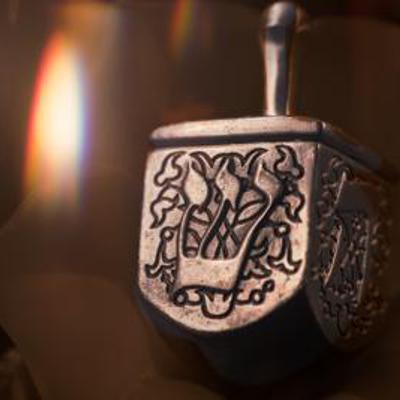
Chanukah Isn't a Fairytale
Some ideas are so simply obvious that we often overlook them. One of those is about the nature of the Chanukah miracles. Chanukah was not a Disney fairytale. Although we praise Hashem for giving the many into the hands of the few and the strong into the hands of the weak, we need to remember that those few and weak didn’t rub a magic lamp and wait for salvation. They fought hard and bloody battles. They were wounded and killed. Jewish families didn’t sit in caves playing dreidel while idly waiting for a miracle. Many were tortured and killed for persisting in a Jewish lifestyle. Even the highlight of the Chanukah story, when the Chashmonaim were able to enter the Bais HaMikdash again and purify it, wasn't a fairytale. They worked hard on their own to clean and purify it before they could use it once more. And of course, the Menorah didn’t miraculously ignite itself and stay lit. The Jews searched for and found one remaining jar of oil and chose to use it. They didn’t throw up their hands when they found a jar too small for proper use, saying, “I guess it’s bashert - we’re not supposed to light the Menorah yet.” Instead, they started doing whatever they could do, lighting the Menorah even if it would be lit just one day. At that point, Hashem took over and the lamps burned eight days until they could make new oil.
Chanukah isn’t about Hashem swooping in and carrying us off on eagle wings. It’s about the partnership between us and Hashem. A famous Chanukah question with hundreds of answers goes like this: If the oil burned the first day naturally and miraculously for seven days, why don’t we celebrate Chanukah for seven days in celebration of the miracle? Why eight days? I heard an answer from Rabbi Yisroel Roll quoting Rav Moshe Shapira. He said that the eight days of Chanukah aren’t celebrating the miracle Hashem did, they’re celebrating our partnership with Hashem, our relationship wherein we both work together. We did our part for one day, He did His part for seven days. The totality of eight days is because Chanukah is about our relationship with Hashem wherein we both play a role. Torah Jews walk this exquisite tightrope; we aren’t fatalists who say, “whatever will be will be, I’m helpless”, and we also aren’t control freaks who believe we can make things go our way if we just make it happen. Rather, we live with both the responsibility in our hands to do what we can with what we have, and at the same time we have faith that Hashem will step in and do His part. If we have one jar of oil, we light it. If we have a few men to fight, we’ll engage in battle. Hashem then takes our small beginnings and makes them bigger, better, and more beautiful than we could have imagined.
Motherhood embodies this partnership between humans and Hashem. Giving birth to a child is an expression of that partnership, giving a bris mila is an extension of that partnership, and raising our children and building our homes is also an expression of that partnership. The world today is so antithetical to the homes we are trying to build, and the challenges to us raising Torah true children are so huge that some may think we should just throw up our hands in despair and give in. Others may think that since the threats loom so large, we have to batten down the hatches and micromanage every aspect of our children’s lives. The true Torah approach, the Chanukah approach, is that of partnership. We have to do our best to parent. We have to be proactive and do what we can. We take each tiny jar of oil Hashem has given us and use it completely. However, even while we are doing our part we know that Hashem is partnering with us and we trust Him to take our small efforts and bring hatzlacha, bracha, and yeshuos far beyond our original effort. Chanukah reminds us of the tremendous power and gift that we have as Hashem’s partners in the world. May Hashem help each one of us this Chanukah and onwards do our part as He wants us to and partner with us raising our children, building Torah homes, and doing His will.
0 comments